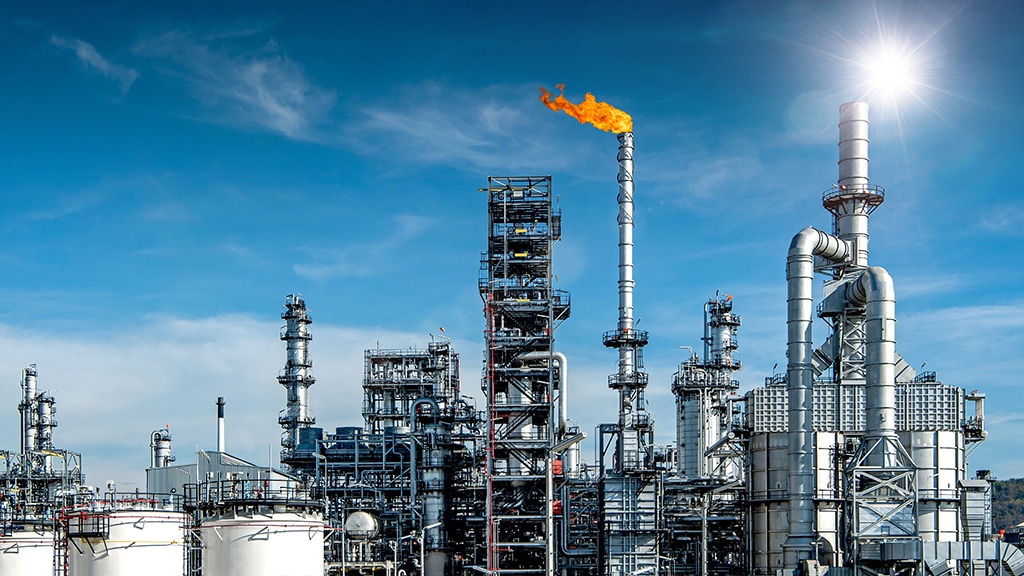KUWAIT: The Organization of Arab Petroleum Exporting Countries (OAPEC) said the revival of ‘NOPEC’ anti-OPEC bill is an attempt to pressure OPEC+ to make it change its decision to reduce its total production. Some members of the US Senate on March 8, 2023 put forward the ‘NOPEC’ bill, the long-standing legislation that would allow the US to take the dramatic step of suing OPEC nations. In a statement OAPEC said on Monday that the supporters of the bill claim that OPEC seeks to set global oil prices, which leads to higher prices for consumers around the world.
The supporters of the draft law did not notice that, if approved, it would lead to a significant inability of supplies to meet future demand in the global oil market, especially in light of the presence of a number of factors, the first of which is the limited surplus production capacity resulting from the lack of investment in the oil sector, which in turn has been exacerbated because of attempts to dispense with fossil fuels. The second is the decline in strategic stocks to critically low levels due to their use by IEA member states over the past year as a tool to influence oil market balances in the aftermath of the Russian-Ukrainian crisis, which has proven ineffective over time, the statement added.
The last of which is the repercussions of the Russian-Ukrainian crisis on crude oil production in Russia, which recently decided to reduce its production by 500,000 b/d during March 2023 in response to the embargo imposed on its oil exports. OAPEC quoted Abdulaziz bin Salman, Minister of Energy of the Kingdom of Saudi Arabia, who said in a press interview with Energy Intelligence that “these policies add new risks and greater ambiguity to the oil market, at a time when there is a great need for clarity and stability, as it will inevitably lead to an exacerbation of market instability and fluctuations, and this will negatively affect the petroleum industry.
He reaffirmed that “the OPEC + group has done its best and succeeded in achieving stability and high transparency in the oil market, especially compared to all other commodity markets.” It is worth noting that this is not the first time that the use of the “NOPEC” law has been hinted at, and previous versions of the bill have failed, the latest of which was its approval by the Judiciary Committee in the US Senate on May 5, 2022, but it was not approved by both houses. Senators and representatives, and it did not reach the stage of being endorsed by the American President.
The bill faces significant opposition from players in the global oil industry, including the American Petroleum Institute, which indicated that this law would lead to more production than market needs, which could lower prices to the point that American energy companies find it difficult to promote production, and threatens US energy security. In the context of responding to the attempt to revive the “NOPEC” bill and the G7 countries to put a ceiling on the price of Russian oil, Prince He also explained that “the NOPEC draft law does not take into account the importance of possessing a reserve of productive capacity and the consequences of not owning this reserve on the oil market.
“We would like to emphasize here that the OPEC countries have not set oil prices at all since the beginning of the eighties of the last century, and all that they mainly aim at is to ensure the stability and balance of the global oil market, through cooperation and coordination with some of the major oil-producing countries from outside within the “OPEC +” group,” the statement said. This is what it has already succeeded in achieving over the past years, during which the global oil market was subjected to severe shocks, the latest of which was the coronavirus pandemic and the Russian-Ukrainian crisis.
We also stress that the “OPEC +” group, which includes six of the OAPEC member states, has shown its willingness and ability to act in a proactive manner to support the fundamentals of the global oil market when facing any developments and uncertain challenges that the oil market may face. The most recent of which was the step taken by a number of member states of the OPEC + group in a coordinated manner, represented in voluntary reduction of oil production by about 1.649 million b/d in addition to the agreed reduction by 2 million b/d according to the decision taken in October 2022, which is a precautionary measure against In order to ensure the stability and balance of the oil market, the decision to voluntarily cut OPEC + countries had a major role in the rise in crude oil prices in the futures markets by about 8 percent, which is the largest rise in one day in more than a year.












